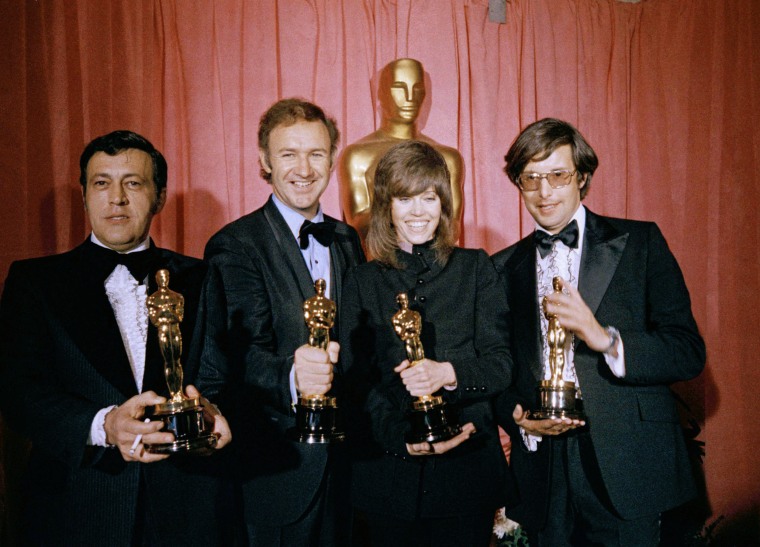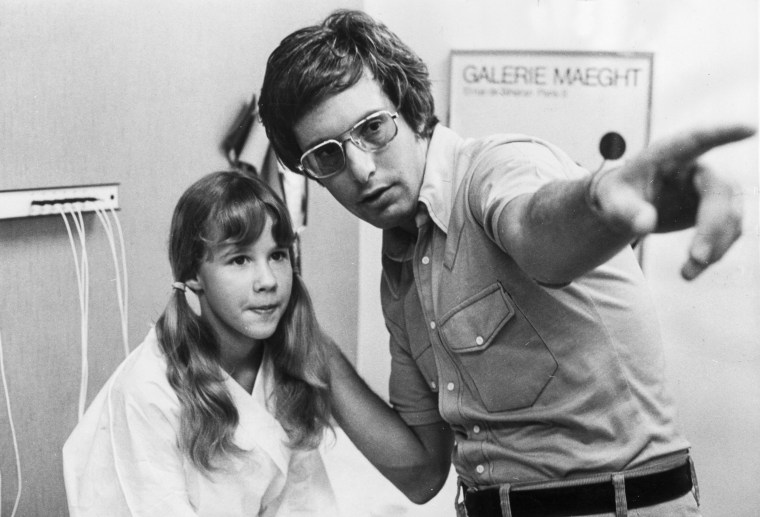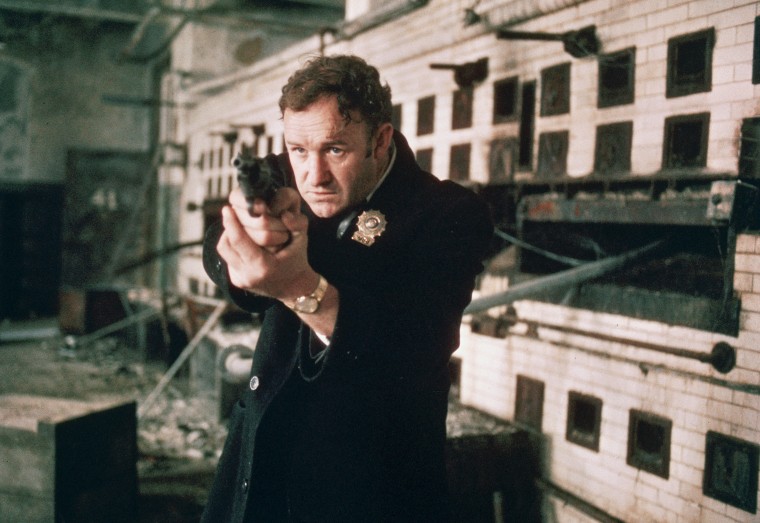[ad_1]
William Friedkin, the maverick film director who helped revolutionize 1970s Hollywood with the electrifying, era-defining classics “The French Connection” and “The Exorcist,” died Monday, a representative from his office told the Associated Press.
He was 87. The former Paramount Pictures head Sherry Lansing, Friedkin’s wife, confirmed his death to other news outlets.
Friedkin was synonymous with the New Hollywood era of the late 1960s and ‘70s, when risk-taking young filmmakers wrested creative control from studio suits and shook up the system. He was known for injecting familiar genres with live-wire energy and edge.
Friedkin won an Academy Award for directing “The French Connection,” a white-knuckle 1971 crime thriller about a brash New York City narcotics detective played by Gene Hackman. The film, anchored by a deliriously high-octane car chase, also won Oscars for best picture and best adapted screenplay.

In an interview with NBC News in 2021, Friedkin said he came to believe he “took too many chances” in filming that famous car chase. “The fact that nobody got hurt is a miracle,” he said. “The fact that I didn’t get killed, the fact that some of the crew members didn’t get hurt or killed. That’s a chance I would never take again. I was young and I didn’t give a damn. I just went out and did it.”
“The Exorcist,” a singularly terrifying 1973 horror masterpiece about a teenage girl possessed by Satan, gave Friedkin the biggest box-office hit of his career. The movie earned more than $440 million globally, shocking audiences around the world with its head-spinning violence and disturbing imagery.

Friedkin also directed a series of cult favorites that have earned loyal followings over the years, including the suspenseful “Sorcerer,” the Al Pacino psychodrama “Cruising” and the crime epic “To Live and Die in L.A.” He struggled to reach the commercial and critical highs of his ’70s output, though, and in recent years he steadily retreated from the limelight.
He was born on Aug. 29, 1935 in Chicago. He got his start in local television and documentary projects before moving to feature films, making his debut with the Sonny & Cher vehicle “Good Times” in 1967. Three years later, he directed “The Boys in the Band,” a LGBTQ cinema landmark about a group of gay friends in Manhattan.
Friedkin got his big break in 1971 with “The French Connection,” a smash with audiences and critics alike. The critic Pauline Kael called the movie a “hugely successful slam-bang thriller that zaps the audience with noise, speed, and brutality.”

“The French Connection” catapulted Friedkin to the top ranks of American filmmakers, putting him in league with other New Hollywood rising stars like Martin Scorsese, Peter Bogdanovich and Francis Ford Coppola.
The director told NBC News in 2021 that the movie struck him as a time capsule for a rougher and grittier chapter in New York City history, saying in part: “The film reminds me of the different nature of New York back then. Nothing about the city was embellished in the film.”
Friedkin leaped from “The French Connection” to “The Exorcist,” adapted from William Peter Blatty’s novel of the same name. The movie, starring Linda Blair as the possessed girl and Ellen Burstyn as her helpless mother, scandalized viewers with its relentless procession of terrors.
“This movie doesn’t rest on the screen; it’s a frontal assault,” Roger Ebert wrote in his review.
In the years to come, Friedkin continued to work steadily on genre entertainments that often wrestled with the ugliness of humanity and moral shades of gray. “Sorcerer,” “Cruising” and “To Live and Die in L.A.” failed to ignite theater box offices but found favor over the years among cinephiles.
Friedkin’s work in the 1990s and 2000s was shakier and less consistent, though two late-career descents into darkness — the psychological thrillers “Bug” and “Killer Joe” — showed glimmers of his youthful promise.
The director recently completed production on “The Caine Mutiny Court-Martial,” a legal drama starring Kiefer Sutherland that is slated to premiere at the Venice International Film Festival in September.
This is a developing story. Please check back for updates.
[ad_2]
Source link


